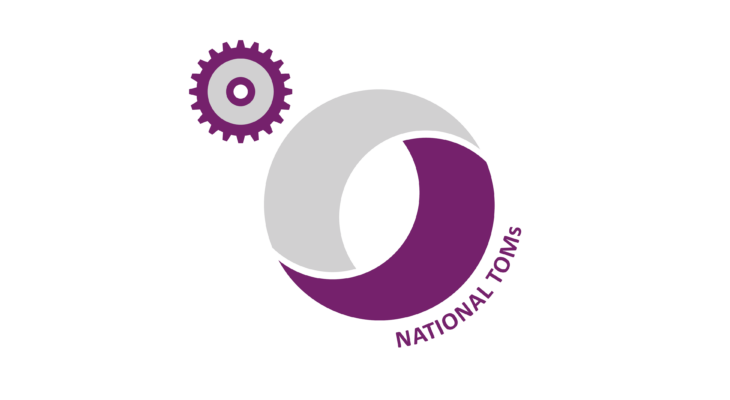Poverty at Christmas
I’ve just had a newsletter from my child’s school, full of lovely things the children will be doing over the coming month. It’s been decided that the Christmas Fair will now involve paying £5 for an ‘activity card’, that we need to donate gifts for Secrets Room (and then send our child with the cash to buy it all back). We’ve got RotaKids Bingo this week, and last week was film night, all of which require a ‘donation’. Oh, and mufti days which each come with the requirement to pay a quid so your child can ditch the uniform for a day.
It all feels a bit overwhelming. I say this as a working mother who has to try and remember all this school related shizzle, whilst keeping her own shizzle together.
But if I was also a mother on low income it might all feel a bit TOO much[1]. It is a fact that in the UK, single parents living with children represent some of the poorest (and most stigmatised) people in our society. JK Rowling, who for a while was possibly the country’s highest profile ‘single parent’, works tirelessly to raise awareness of this fact. Proud of My Years as a Single Mother – Gingerbread
But the situation for many families with two working adults is also pretty desperate. Many parents simply do not earn enough in their working hours to cover the basic costs of living. According to Oxfam, even before Covid-19, some 500,000 people in the UK were already reliant on food banks, and that 1 in 6 parents experienced going without food in order to feed their children. About 1.3 million children in the UK qualified for free school meals at the start of March last year.
We’ve got a system which seems pretty broken, resulting in child poverty and parents who can’t afford to put food on the table, having to make some hard choices[2]. And now it’s Christmas. But is there anything that we can really do about it?
Well, yes. Obviously there are some massive issues at play here, but there are actions we can take which will make a difference – and often this is more about attitude than money.
As employers we can consider setting up a Hardship Loan Fund, which employees can access without stigma. Many companies pay salaries a little early in December, but it’s worth recognizing that January becomes that bit grimmer as a result. Ultimately, a key cause of poverty is that people don’t work enough hours or earn enough in the hours they do work – how can you adopt practices which ensure employees don’t find themselves in this situation? Flexible and/or home-based working can be the difference between someone with caring responsibilities being able to work or not.

As educators, how do we set up systems which enable parents to ask for help when they need it? In fact, how do we set up systems that don’t put a parent in a situation of having to ask for help in the first place? One school I know doesn’t do mufti days, recognizing that it causes stress for students who can’t afford branded clothing – as much as students hate uniform, it is a decent leveller. Identifying which families might need support is helpful, and Free School Meals is the recognised indicator of need, but it’s a blunt tool and can be stigmatizing. It must be particularly hard being a parent experiencing poverty in an area of advantage – and this is frequently the case in our rural communities, where extreme poverty can exist next door to extreme wealth.
As human beings, how can we be aware of hidden deprivation and work to tackle stigma? Can we learn to make decisions which are mindful of life circumstance? Sometimes I help my clients consider the impact of their decisions on ‘example’ clients or beneficiary groups – simply modelling the exercise in empathy ‘Before you judge a man, walk a mile in his shoes.’
In summary, I’m not saying drop Christmas, Easter, Birthdays and other fun stuff. On the contrary, I love a good party and Christmas is one of the best for me. But it’s also a time for being aware of others. I love the fact (after initial panic that I’ll forget which day is which, but that’s a whole other issue #generalparentalfailure) that there are lots of exciting things for my child to do – it’s been a pretty naff couple of years for the little lad. I just want everyone to be able to feel as excited about it as I do.
TSVB is a specialist consultancy that helps organisations understand and apply the UK government’s methodology for ‘buying’ social value. We’re running training sessions in social value in the New Year.
[1] Understanding poverty is a complex thing, and there is no official ‘poverty line’ because financial circumstances are unique to each of us. If you’re interested in this, my blog Understanding Poverty – The Shared Value Business (tsvb.co.uk) might be helpful to understand the complexity of poverty.
[2] Let me give you a practical example. TSVB co-ordinates a voluntary programme distributing laptops to charities and schools. Speaking to charities and schools with catchments in socio-economically deprived areas, we were told that ‘gifting’ a new laptop presented difficulties for some families, and in some cases IT equipment was being sold on. It’s easy to judge this behaviour. But let me ask you – if it was your child going hungry, and the opportunity to put food on the table presented itself in this way, what would you do?





